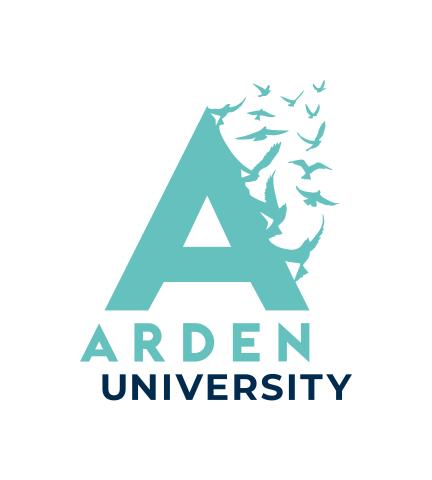
How to write better awards entries
Whether it’s watching the glitz and glamour of the Oscars on television or attending an industry gala hosted by a mid-tier stand-up comedian doing top-up corporate work, who doesn’t love an awards ceremony?
As well as the lure of pre-paid wine on the table and chicken wrapped in Parma ham, any awards do also serves as a welcome celebration of 12 months of hard work, progress and achievements. They’re important, too, especially in our sector. After all, winning a prestigious award can provide an institution with many tangible benefits. A big win can turn heads in the industry and help attract new students, funding and accreditations.
- How to ensure your university’s branding isn’t as bland as blancmange
- How to achieve PR impact with little – or no – budget
- Tactics for revamping your comms with students front and centre
Before getting to that stage, though, you’ve got an award entry form to navigate. Sometimes they’re a teasingly open 2,000-word essay, encouraging the squishing together of a sprawling mass of activity, financial reports, student testimonials and cold, hard data – all of them competing for airtime. Other times the form is broken up into specific questions, so you can’t hide behind waffle. But whatever form the entry takes, what matters most is how you tell your institution’s story. Having written so many drafts of award entries that I see tracked changes from senior stakeholders whenever I close my eyes, I can offer some advice:
Get a comprehensive recap of the year
The first thing to do before you start writing should be get as many other people involved as possible, then go back through the eligibility period as a group and pick out the best things you’ve done. Take time to analyse what your actions say about your institution. For example, you might want to base an entry around EDI success, but if you’re struggling to find immediate evidence, then you’re better off looking at what you have done. As an institution you will have done a lot, and not everything will escape the edit. It’s up to you, though, to spot patterns across the many individual initiatives.
Interview your stakeholders
If you’re looking to tell a complete story in your entry, then simply asking your key stakeholders to provide some top-line bullet points isn’t going to cut it. Take the time to schedule a proper interview with them. Go into it with an outsider’s mentality and ask them questions that force them to really sell you their department, programme or initiative. Then, when you’re finished, get the whole thing transcribed. Doing this, you’ll find yourself getting not just ideas from them, but direct phrases from these transcripts will find their way into the entry verbatim. After all, they are the ones who are most likely to speak compellingly about the nuances of their work.
Tell the whole story, warts and all
After winning big at this year’s Oscars, best picture winner Everything Everywhere All At Once has a lot going for it, it’s fair to say. The wins only tell part of the film’s story, though. This was a labour-of-love movie that took on a market full of franchise tentpoles. The movie was great, sure, but it had a real story. Made on a relatively shoestring budget, the film was put out in the world by a critically adored distributor. There was a diverse cast that included Ke Huy Quan, who played Short Round in Indiana Jones and the Temple of Doom. The VFX crew taught themselves to create effects by watching YouTube videos. These parts of the film’s story aren’t just interesting morsels – they’re all elements that the jury would have considered alongside the product itself.
Scorsese didn’t win an Oscar for Mean Streets, he won it for The Departed. Leonardo DiCaprio’s long-running snubbing was undoubtedly a factor in the judging of his winning best actor in The Revenant, as was the fact that the well-reported shoot for the movie apparently put him through hell. Stories help sell the product.
It’s fair to say that your institution’s backstory won’t be reported on in anywhere near as much detail as that of Hollywood stars and movies. That’s why you have to pick up the slack on the entry form. If your staff count is significantly lower than your rivals’, mention it! If you have no budget and are innovating with what little you’ve got, mention it!
Make sure to include the areas you’ve improved on, and don’t be shy in saying how bad they used to be. If your student numbers have grown massively, then that’s great. But try to outline what was holding them back before. If your library received increased investment, then mention why it needed it. Not skirting around the bad can provide a jury with a compelling context around your improvements. It may feel counterproductive to badmouth your university when you’re right up to the word count, but people go wild for a good before/after juxtaposition.
Read the statistics first
Treat your statistics with the respect they deserve. Don’t try to retrofit statistics to suit your narrative. Don’t try to shoehorn in nice stats if they aren’t relevant. Go out and collect your data properly. Read through it, understand it, find the story in that boring Excel document. Doing it the other way round is tantamount to cheating – and everyone can tell.
Work out how to refer to your team and your entry
So, you’ve got the facts, you’ve got the stats, your key stakeholders have bought into the story you’re telling across your entry – now it’s just about writing the whole thing down. There’s no one right way to do this, of course, but it’s important to give consideration to the language and tone you use. Using “we” can be a really powerful tool for a challenger brand, allowing them to tug at the heartstrings of a jury. After all, who doesn’t love the emotional pull of a journey? However, if you’re a brand at the top of the tree, talking in this way can come across as overfamiliar and the degree of formality that “it” brings could help take you further.
Sam Russell is a content executive at Arden University, UK.
If you found this interesting and want advice and insight from academics and university staff delivered direct to your inbox each week, sign up for the Campus newsletter.




